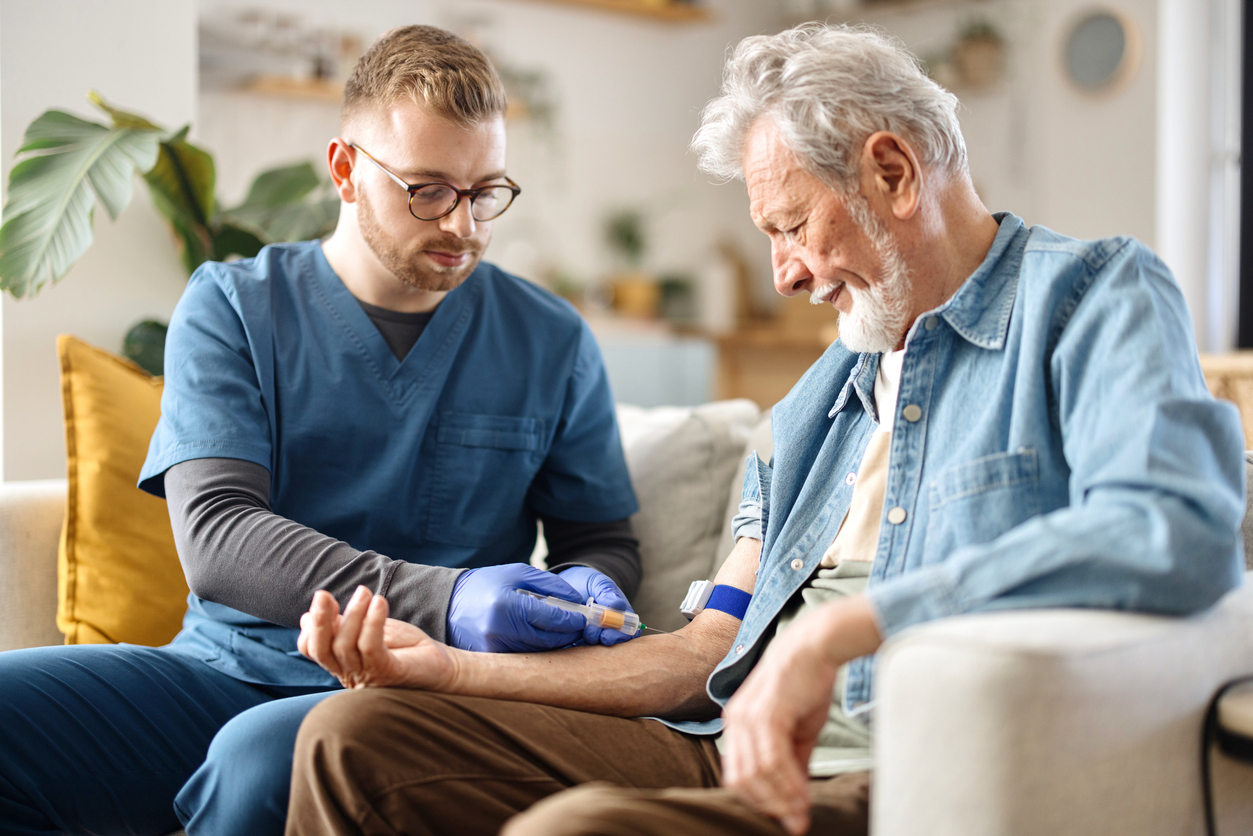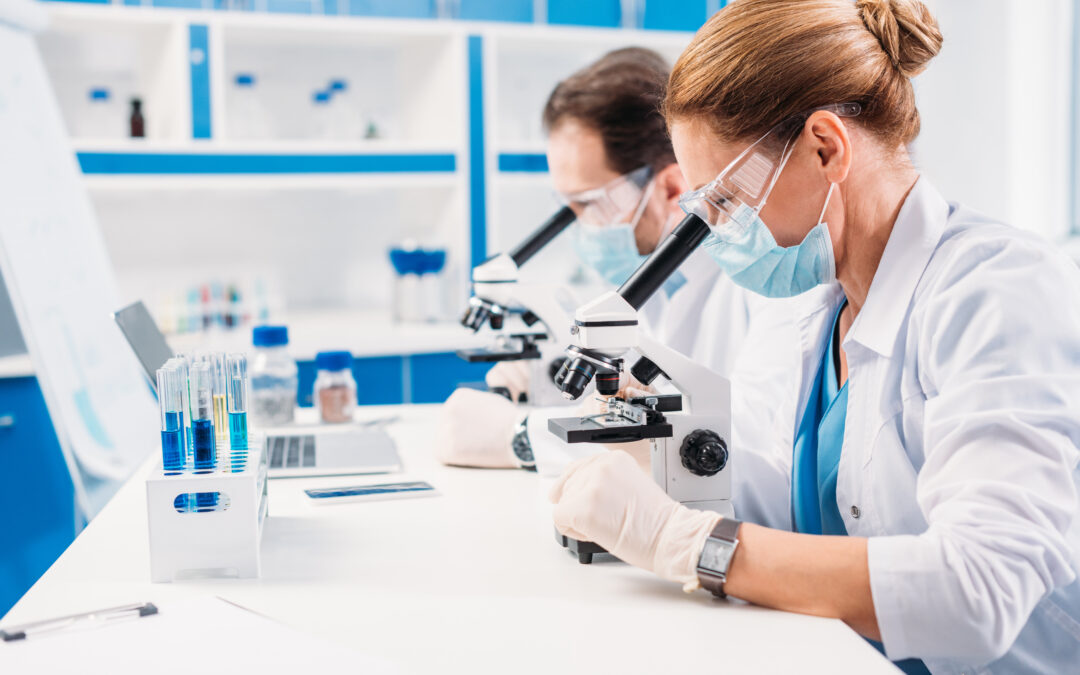
In-house laboratory testing can significantly enhance the quality of care in nursing homes, especially when your patients need urgent care. With the latest advances in molecular diagnostics, nursing homes are now able to provide rapid, next-day test results that lead to faster clinical decisions and improved patient outcomes. How can you bring your lab tests in-house? With Cadence Lab Services, we can do the heavy lifting for you while you focus on patient care. We offer a turn-key lab setup and our billing expertise at every step, starting with this comprehensive guide.
Advantages of Running a Molecular Lab for Your Nursing Home
A molecular testing lab allows nursing homes to deliver faster and more precise diagnoses, which can make a measurable difference in patient care and satisfaction. By processing samples in-house with PCR-based diagnostics, practitioners can act on results within hours rather than days, allowing quicker adjustments to treatment plans.
Benefits of On-Site Testing for Nursing Homes:
- Rapid Test Turnaround: Enables timely decisions for acute wound,fungal and Urinary infections.
- Revenue Opportunities: Molecular test reimbursements from nursing home contracts can improve financial stability.
- Antibiotic Stewardship: Real-time data supports effective use and monitoring of antimicrobials.
- Enhanced Stat/urgent control: Testing can be scheduled as needed for STAT cases.
- Rapid Control of Airborne Illness infections including influenza and COVID 19.
Comparing Test Reliability Between Internal and External Laboratories
Most in-house clinical laboratories follow rigorous quality control processes and adhere to regulatory standards. So their results are comparable in accuracy to those of outside facilities, however there’s no slow down or errors during the delivery process and the nursing home has full control of timing of samples.
Is Point-of-Care Analysis an Alternative to Traditional In-House Testing?
Point-of-care testing (POCT) provides rapid results for specific tests at or near the location of patient care. Although POCT is useful for quick diagnostics, it often covers a limited range of conditions and cannot entirely take the place of conventional laboratory workflows, especially for more complex or specialized tests.The accuracy of POCT is poor and often leads to false positives.
How a Molecular Lab Elevates Your nursing home
Having an internal lab lets nursing homes control the speed and quality of diagnostic work. Results can be processed during appointments, which supports better clinical decisions and a quicker response for patients. This approach also helps minimize reliance on third-party labs, cutting costs and streamlining operations.
Direct oversight and faster reporting make it easier for providers to deliver attentive, patient-centered care.
Phase 1: Consulting Specialists for Launching a SNF Lab Business
Selecting Tests That Fit the Needs of nursing homes
Expert consulting ensures eachSNF lab offers tests that directly serve its patient base and practice type. Effective planning involves reviewing the clinic’s current diagnostic patterns and matching them with high-impact assays, particularly those that support rapid and evidence-based decisions.
Leveraging molecular assays and PCR panels is beneficial due to their ability to detect various pathogens, antimicrobial resistance genes, and cancer biomarkers quickly. Practices can enhance patient management by choosing panels that cover both pathogens and inflammation markers.
Benefits include:
- Broad pathogen coverage in a single analysis
- Antimicrobial resistance gene reporting
- Accelerated turnaround—results often within the same day
Popular Molecular Testing in Long-Term Care Settings
Nursing homes frequently require molecular testing tailored to older adults’ unique risks and infection profiles. High-yield molecular tests in these settings, together with their average Medicare/commercial reimbursement ranges, include:
|
Molecular Test |
Primary Application |
Typical Reimbursement |
|
Respiratory Pathogen PCR Panel |
Detection of influenza, RSV, SARS-CoV-2, and other respiratory pathogens |
$450 – $700 |
|
COVID-19, Flu AB, RSV |
SARS-CoV-2, FLU, RSV detection |
$100 – $150 |
|
Stool Pathogen testing |
Detection of toxigenic C. difficile in stool |
$200 – $400 |
|
UTI Pathogen PCR Panel |
Identification of bacteria and resistance genes in urinary tract infections |
$750 – $1000 |
|
Wound Pathogen Panel |
Screening for MRSA and S. aureus in wound/skin infections |
$500 – $800 |
|
Fungal Pathogen Panel |
Diagnosis of viral gastroenteritis/outbreak control |
$450 – $600 |
*Reimbursement amounts are typical for nursing home testing and can vary by payer/provider agreements.
These test panels are selected based on real-world needs of nursing home residents and emphasize both diagnostic value and financial sustainability, with support from consulting partners ensuring all processes meet regulatory expectations and operational targets.
Phase 2: Financial Planning for Your SNF Clinical Laboratory
Effective financial planning is crucial when developing a molecular clinical lab. By analyzing actual test volumes and billing details, laboratories can estimate both startup costs and long-term revenue streams. We’ll run the numbers of your nursing home for 2 months to show you real-time profits that you could make running our billing models.
A structured review period helps clarify return on investment, highlighting where costs and reimbursements align. Transparent data and projections support confident decision-making for the future of your lab.
Phase 3: Establishing Your SNF Lab and Adhering to Compliance Requirements
Setting up a molecular laboratory requires careful preparation to meet federal, state, and local regulatory standards. Key accreditations, such as CLIA, COLA, and CAP, each have specific application processes, facility requirements, and staff training obligations. Labs must ensure not only that physical spaces and equipment meet standards, but also that ongoing documentation and protocol updates align with quality and safety expectations.
Essential Compliance Areas:
- Facility and equipment readiness
- Staff qualifications plus regular training
- Quality assurance processes
- Accurate recordkeeping and reporting
- OSHA, HIPAA, and local health regulations
Phase 4: Lab Design, Equipment, and Workflow for nursing homes
Laboratory Configuration and Space Utilization
Efficient lab operation begins with a thoughtful floor plan. Clearly separated areas for specimen intake, processing, storage, and office administration help streamline activities and support regulatory compliance. Safety features and ergonomic considerations are integrated into each zone.
Procuring and Preparing Essential Instruments
Careful selection of equipment is crucial. Recommended items include validated molecular analyzers, centrifuges, medical refrigerators, biosafety cabinets, and pathology tools. All instruments are installed, calibrated, and documented to ensure proper functioning and regulatory conformity.
Streamlining Day-to-Day Operations
Effective processes for collecting, labeling, and processing molecular samples are established and routinely reviewed. Integration of a Laboratory Information System (LIS) with electronic medical records (EMR) supports accurate data exchange and reporting. Regular support is provided for refining protocols as lab needs evolve.
Phase 5: Organizing Staff for Your Clinical Laboratory
Attracting and Acclimating New Team Members
Hiring the right professionals is essential for laboratory success. Leadership roles such as Lab Directors and specialized positions like Medical LabTechnologists, Clinical Lab Scientists, and MD/PHD are fundamental. During onboarding, all new staff are verified for credentials and introduced to laboratory protocols and safety standards. A detailed checklist can assist with the onboarding process:
|
Position |
Credential Verification |
Protocol Orientation |
Compliance Training |
|
Lab Director |
✔ |
✔ |
✔ |
|
Medical Technologist |
✔ |
✔ |
✔ |
|
Technician |
✔ |
✔ |
✔ |
|
Support Staff |
✔ |
✔ |
✔ |
Professional Growth and Skill Verification
Routine and focused training ensures staff are proficient in specimen management, molecular diagnostics, and quality assurance. Ongoing evaluations and assessments confirm their competency with laboratory information systems (LIS) and standard operating protocols. Training highlights may include:
- Specimen collection and handling best practices
- Use of digital tools and LIS for result reporting
- Molecular testing processes relevant to GI pathology
- Staff progress is tracked to maintain high standards of accuracy and compliance.
Inspection Readiness and Continuous Support
Preparing for regulatory assessments involves simulated audits and document checks to pinpoint areas needing improvement. Regular review sessions and targeted education empower staff to adapt to changing guidelines and remain in compliance. Support is ongoing and includes access to reference materials, routine feedback, and opportunities for continuing education. Staff are kept informed of:
- Current regulatory standards
- Updates in clinical laboratory practices
- Documentation and recordkeeping expectations
FAQ: How to Start a Lab Business
What Steps Should You Take First to Launch a Laboratory?
Starting a laboratory business begins with defining the focus area, such as an infectious disease, or general clinical testing. Key initial actions include drafting a comprehensive business plan, researching the market demand, and mapping out regulatory requirements. Consultation with laboratory development specialists can bring valuable insight in these early phases.
Which Licenses and Approvals Do New Lab Businesses Need?
Laboratories must comply with federal and state legal requirements. In the United States, a CLIA (Clinical Laboratory Improvement Amendments) certificate is mandatory. Some states also require their own licenses, and labs may seek additional accreditations such as CAP (College of American Pathologists) or COLA for quality assurance and credibility.
What Kinds of Tests Should a Lab in a Nursing Home Provide?
Testing menus should be tailored to the patient profiles serviced—in nursing homes, high-need molecular and pathology tests may include: Urinary Tract Infection panel, Wound pathogen panel, Fungal panel, Respiratory Infection Panel, Stool pathogen infection panel, and Vaginitis Pathogen panel.
How Much Time Is Needed Before a Lab Is Operational?
The estimated timeline to open a fully functioning lab is approximately 12 to 16 weeks. This includes time for securing regulatory requirements, equipment procurement, Medical Director and staff hiring, and meeting compliance requirements.
What Are Some Obstacles Encountered When Opening a Lab?
Major obstacles include interpreting complex laboratory regulations, hiring and training staff, selecting suitable equipment, and maintaining ongoing quality control. Regulatory compliance and adaptation to changing healthcare rules can also be challenging.
Is It Possible to Contract Out Certain Lab Start-Up Tasks?
Outsourcing is a practical solution for many start-ups. Experienced laboratory consulting and set-up companies can take on responsibilities such as facility design, compliance management, equipment purchasing, and staff on-boarding. This approach often leads to fewer delays and regulatory hurdles.
What Can Make a Lab Business Financially Successful?
Profitability is achieved through thoughtful selection of tests, managing efficient workflows, and securing proper reimbursement for services. Financial planning—especially one based on real-world patient volume data—helps prevent shortfalls and ensures sustainability.
Sample strategies:
- Offer high-demand, reimbursable tests.
- Streamline operational costs with automation.
- Monitor billing and payer relationships regularly.
Who Provides Professional Support for GI Lab Start-Ups?
Lab consulting firms, such as Cadence Lab Services, offer end-to-end support for clinical labs. Their expertise ranges from navigating regulations and optimizing process flow to training employees and choosing the right instrumentation. These partners are valuable for achieving compliance and fostering laboratory growth.
How Individuals Can Use On-Site Lab Services
Patients can access on-site laboratory tests when ordered by a licensed healthcare provider within the same facility. Results are usually shared quickly with both provider and patient, and some locations may allow patients to request certain screenings directly or through wellness programs.
What are the Legal and Regulatory Considerations for Internal Clinical Laboratories?
All in-house clinical laboratories must meet federal, state, and local regulations. In the United States, Clinical Laboratory Improvement Amendments (CLIA) certification is required. Laboratories may also need to comply with Occupational Safety and Health Administration (OSHA) guidelines and other standards, depending on the types of tests offered and the facility’s location. Regular inspections and documentation are typically mandatory to maintain legal operation.
Find Out How Much Your Current Lab Work is Worth
Cadence Lab Services will help you calculate your current labwork for 2 months to show you the potential margins on bringing a lab-house. Our turnkey solutions take all the guess work out of your investment and empower you to provide the highest quality and fastest care to your patients.
Read Next

Dr. Kia Michel
Urologist and Lab Management Expert
Kia Michel MD is co-founder of Cadence Lab Services. A renowned urologist, he opened his own in-house lab when he realized that he could improve patient outcomes in his urology practice, Comprehensive Urology in Beverly Hills, by having the power of fast test results. He shares his knowledge of the lab industry to empower other clinicians to take control of their own lab work.

How Much Does it Cost to Run a Laboratory?
Establishing a medical laboratory involves a range of important considerations, each playing a critical role in building a strong, compliant, and reliable operation. From selecting an appropriate...

Start Your Own Lab with Cadence Lab Services: Step by Step
How do you start your own lab to improve your ability to get fast results for your patients? Medical laboratories play a critical role within healthcare, providing analytical and diagnostic services...

Clinical Laboratory Profitability: Top Ways to Increase Your Lab’s Revenue in 2025
Clinical laboratories are facing increased demands each year, from boosting test volumes and reducing turnaround times to controlling costs, all while managing with fewer resources and a shrinking...
